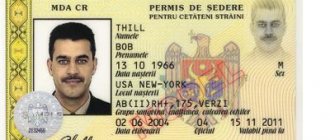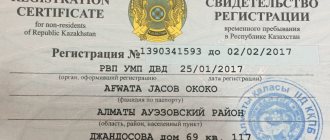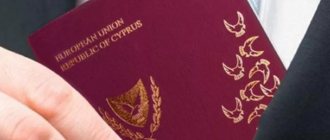Visa to
Tours to Israel
The question of whether Russian citizens need a visa to Israel was resolved back in 2008, when a visa-free regime was announced between our countries, which in reality means obtaining a visa on arrival. Travelers do not encounter any difficulties with entry, but a number of nuances and specifics of staying in a Middle Eastern state must be remembered.
Is it possible to travel to Israel without a visa?
Yes, and this opportunity is used annually by tens of thousands of our compatriots who decide to visit the Holy Land. The Israeli authorities have a unique concept of a visa-free visit; it includes the following goals:
- Tourism;
- Treatment;
- Private visit to a relative/friend;
- Pilgrimage;
- Business trip paid for by the Russian side.
Regardless of the above goals, Russians are given the right to stay in Israel for up to 90 days every six months, after which they will be required to either leave the country or extend their migration status. In order to legally cross the border, a tourist must have the following documents with him:
- A passport with a remaining validity of more than 180 days at the time of arrival;
- Medical insurance policy with all prescribed risks and a minimum amount of coverage of $50,000;
- Return air ticket with a fixed date;
- Tourist voucher, or printout of reservation and payment for a hotel room;
- Confirmation of financial independence - cash or debit card, the balance of which is checked on site through the terminal (no bank statement needed!);
- Certificate and referral from a doctor, if the goal is treatment;
- Invitation letter from an Israeli citizen for a private visit.
Once all documents have been verified, the border guard officer calls the foreigner to a special counter for an interview. As a rule, the conversation takes place in Russian in a relaxed manner, but the following questions are guaranteed to be asked:
- Purpose of arrival and planned route of travel?
- Do you have family or friendly ties with Israeli citizens?
- Are you Jewish?
- Are there any prohibited items in your luggage?
The last answer does not matter, because after the interview a mandatory baggage inspection begins for everyone. It can last from 15 minutes to an hour if the border guards have any suspicions. The fewest complaints are about tourists arriving on Israeli airlines, which check passengers with similar predilections even before boarding. Once the inspection is successful, guests are released from the transit zone.
Important: Since 2011, due to problems with travel to Arab and other Muslim countries, visa stamps in international passports have been replaced with migration coupons with a QR code and a scan of a photograph. This card is valid for the entire period of the trip and must be kept until you return home.
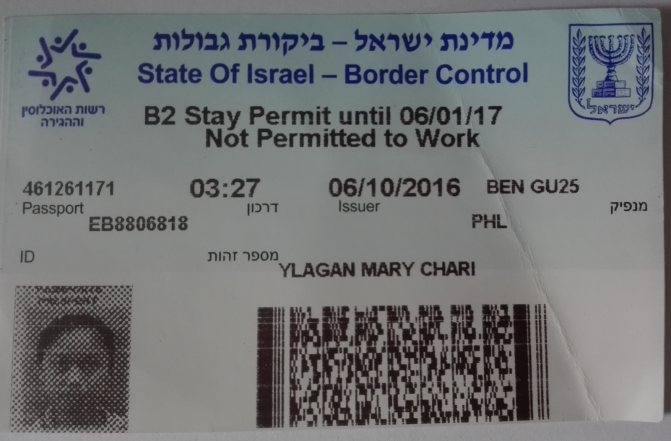
The only restriction that awaits a foreigner under visa-free entry is the inability to get a job or run a business. Israeli intelligence services will closely monitor the state of the bank account - any violation is regarded as a criminal offense and entails severe penalties, including prison without the right of extradition.
Rules for visa-free entry
The decision to allow a visitor to pass is made by the border guard. It evaluates whether the foreigner is a potential terrorist or illegal immigrant. If the purpose of the visit is beyond doubt, then a blue card is issued, which indicates the type of B2 visa, its validity period, and most importantly: there is the inscription “without the right to work.” You need to keep it until you leave, since no stamps are placed on the international passport.
Holders of an Israeli work visa (B1), who have used it without violations, can come to the country as tourists no earlier than a year after departure.
Movement throughout most of Israel is free. However, you can only visit the West Bank of Jordan as part of organized groups, and the Gaza Strip with permission from the Ministry of Defense and local intelligence services. Entry into the Palestinian territories is periodically completely blocked.
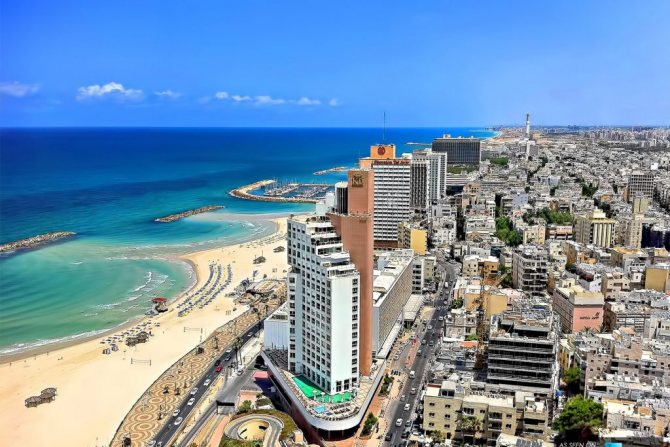
Tel Aviv, Israel
What documents are needed for the trip?
The list of required documents is quite modest:
- Russian Federation international passport valid for at least six months;
- ticket for returning to the country of residence or leaving for a third (for transit passengers);
- medical insurance.
It is acceptable to not have a return ticket if there is an invitation from an Israeli clinic and the end date of treatment is unknown.
In addition to the listed documents, it is advisable to have a hotel reservation or know the address where you will live. They may also be interested in financial support for the trip. This could be an invitation from an Israeli citizen (with an indication that he will cover the costs), cash, a bank card, traveler's checks.
Insurance
Medicine in Israel is good, but very expensive. Only victims of terrorist attacks or road accidents can count on free medical care. In the first case, the state pays for treatment, in the second, the culprit of the accident pays.
To visit Israel, medical insurance is issued in Russia. It is calculated based on the number of days of stay in the Holy Land and begins to operate immediately upon arrival. If desired, you can take out additional Israeli insurance.
You can apply for insurance online. To do this, just go to the website Cherehapa.ru, select a suitable company, pay and receive a health insurance policy.
Documents for children
If a child is traveling to Israel with one of the parents or with a proxy, a notarized permission translated into English is required from the absent parent. It must have an Apostille stamp. The permit must be valid for no more than 3 years.
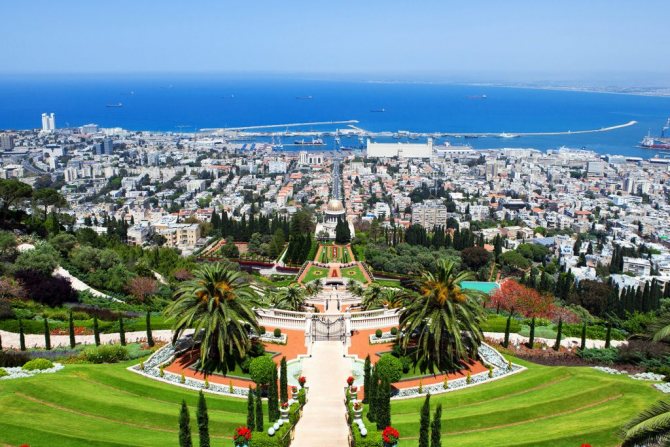
Haifa, Israel
Types of Israeli Visa
A classic visa to Israel for Russians in 2021 is needed in exceptional cases that do not fit into the framework of a three-month tourist or private visit. This can be either a procedure for obtaining citizenship, or study or work. The validity period of such documents is negotiated individually, and they can only be obtained at the Israeli Embassy in Moscow by submitting an application in person and undergoing interviews.
A1
It is also called “Aliya” – or a temporary resident visa for obtaining a residence permit. According to the repatriation law, such a document can be issued to the following applicants:
- An ethnic Jew, regardless of country of residence, with at least one supporting document;
- Adopted children living in a Jewish family;
- Any person who voluntarily converted to Judaism.
Next, the candidate will undergo an inspection by the international Jewish agency Sokhnut, which is responsible for the return of Jews to their homeland. Only after official approval can documents be submitted to the Embassy, which decides to issue the right to reside in Israel from 3 to 7 years, depending on the specific situation.
A2
A study visa, which is much easier to obtain because Israeli universities are open to absolutely all students, regardless of their religion or nationality. The original certificate of enrollment and payment receipt for the first semester are sufficient to receive a stamp for 1 year with automatic renewal at the request of the university.
B1
A working document that allows you to find a permanent job, conduct business, or engage in any kind of creativity. To issue it, there are a number of restrictions that must be strictly observed, or meet the stated requirement, for example:
- The applicant must be between 25 and 55 years old;
- It is advisable to have an official work experience of 3 years or more;
- Fluency in Hebrew is required;
- If necessary, undergo licensing under the supervision of the Israeli Ministry of Internal Affairs.
This visa allows you to permanently reside in the country for up to 8 years without having to leave.
Special visas
In addition to the above list, there are a number of stamps that are placed in extraordinary cases, and if for any visa to the USA this is considered the norm, then for Israel such marks are rather exceptions to the rules. These include:
- A3 – confessor’s passport, issued for Christian or Jewish priests coming to services in honor of major celebrations.
- A4 – family members (spouse and children) of a foreigner temporarily working in Israel.
- B3 – non-standard situations – urgent hospitalization without prior examination and referrals from the attending physician, funeral of a relative, etc.
- B4 – volunteer activities – Red Cross, sports competitions, etc.
Russians do not need to obtain a B2 tourist visa; the conditions of stay under it are similar to visa-free entry.
How to extend a visa on the spot in Israel?
If all the rules for entry into Israel for Russians have been followed, then tourists are allowed to stay in the state for a maximum of 90 days. If there is an urgent reason that requires them to remain in the country, for example due to illness, they should:
- come to the Ministry of Internal Affairs;
- bring photos,
- international passport,
- an explanatory note detailing the reason for the delay in writing.
Proof of material wealth is also a prerequisite. If you need to stay in Israel for treatment purposes, you should definitely take a certificate from a medical institution.
An official form must be drawn up at the Ministry of Internal Affairs and a financial sum of 175 shekels is paid. If you believe in practice, they are most often more willing to extend visas to blood relatives of Israeli citizens. The additional period may be 180 days or even a year.
What documents are needed for a visa to Israel
In most cases, if Russian citizens apply to the Embassy to obtain Israeli entry stamps, then we are talking about work visas. For them it is necessary to provide an extended package of documents, which should include:
- Application form completed in Hebrew or English;
- A passport valid for at least six months;
- Certificate of no criminal record at the place of residence;
- Original employment contract;
- Notarized invitation from the employer;
- Certificate of vaccination and negative test results for HIV, hepatitis and tuberculosis;
- Work permit from the Israeli Ministry of Internal Affairs;
- 2 color photos 5x5 cm on a white background;
- Confirmation of long-term rental of living space.
Important: Filling out a visa application form for a tourist visit to Israel is not required - it is replaced by an interview with a border officer and a full search of luggage.
Students will also need similar items regarding certificates. The consul has every right to ask for an extended package to make sure that the applicant does not pose a risk for the duration of future studies and residence in the country.
Who needs a visa?
Do I need a visa to Israel for students? To obtain education in this country, a visa to Israel is required. However, according to the category (A2), obtaining such a visa is not particularly difficult, including for a citizen of the Russian Federation. In addition to the foreign and national passport, you will need to provide the Consulate or Embassy, as well as the visa center with a completed application form, photographs, documents from the university confirming enrollment and documents that can confirm the financial solvency of the future student, his ability to pay for housing, food and the educational process . You will need to pay the consular fee and provide documents confirming payment (receipt).
Do people planning to travel for work purposes need a visa to Israel? In this case, in addition to a valid passport, a visa to Israel will be required for Russians. In terms of category (B1), this document is issued with somewhat more difficulty than the educational document. Applying for a visa to Israel begins only after receiving permission from the Ministry of Internal Affairs, the validity period of the permit is 1 month, during this period you need to submit all the necessary documents to the consulate. The list of documents for citizens of the Russian Federation in this case is wider and includes not only the applicants’ passports, their medical certificates, questionnaires and photographs. For Russian citizens, the following documents will be required: documents confirming fingerprinting, a medical certificate of health from the clinic indicated at the Consulate, documents confirming no criminal record.
After reviewing the documents, persons who plan to enter the Israeli state must undergo an interview, during which a final decision on whether to issue a visa will be made. The consulate may also require additional information from the Russian.
Children, in order to be allowed to enter Israel, may require not only permission from the parent(s), but also a certificate from the educational institution.
Do pilgrims need a visa? If a tourist is heading to the country at the call of faith, and the duration of his trip does not exceed 3 months, a visa to Israel is not needed for Russians. Persons holding clergy will need to obtain a visa to Israel if the purpose of their trip is service. They, like any citizen of the Russian Federation, will have to contact the Ministry of Internal Affairs to obtain permission and collect documents (standard package), including a valid passport. The document for entry into the country for clergy has category A3.
Obtaining a visa to Israel for Russian citizens (category A3) who want to enter for permanent residence is possible only for Jews.
They will need to present their passports, as well as the entire range of documents, at the consulate.
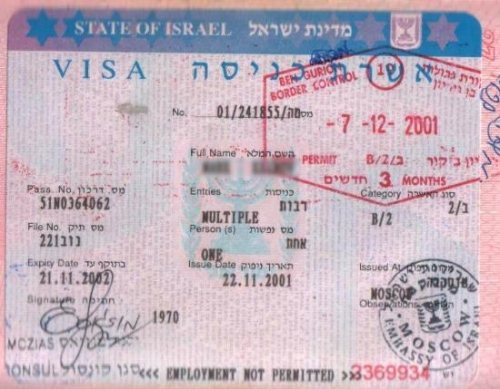
What are the differences for children?
There is no particular difference with other countries - a minor child over 14 years old is required to have his own passport, for the rest it is enough to be included in the parent’s document. It is also necessary to attach to the general list:
- Original birth certificate;
- Permission from the second parent, if he stays at home, certified by the registry office (translation into a foreign language is not needed).
If a child is going for treatment, then it is advisable to translate the conclusions of all doctors and their recommendations into at least English, and ideally into Hebrew. Not all clinics have staff translators, whose services are quite expensive.
Documents for crossing the border
Do Russians need a visa to Belarus in 2021?
A visa-free regime with Israel has been introduced, but Russians must have the following documents with them:
- Return plane tickets;
- Evidence of financial well-being - account statement, credit card, etc.;
- Foreign passport - the validity period should not expire within six months from the moment of entry into Israel (it is recommended that it does not contain stamps on stay in states that are in hostile relations with Israel: Sudan, Syria, Iran, Libya, Lebanon, Yemen - such travelers are especially carefully checked at the border);
- For children - a birth certificate, if he crosses the border with one of the parents or with a representative - permission (from both or one guardian).
- Medical insurance is not a requirement, but is recommended. You can take out a standard policy with an indemnity amount of 30 thousand euros. If it is not there, then medical assistance will only be provided in the event of a terrorist attack or accident - you will have to pay from your own budget (treatment is not cheap).
- Evidence of the purpose and type of trip: you will have to provide a hotel reservation, an invitation from friends or family, a certificate from a medical institution, etc.
Important! Immediately after arrival, a thorough border search and vigorous interrogation can begin. This often takes time. After all the procedures, the border service officer issues a visa with a date, without leaving a stamp in the passport. Only in Eilat and the border on the ground do they put arrival marks. There is no visa fee for air travel. When moving by car, an entry tax is paid.
Where to apply for a visa to Israel?
There is not a single official Israeli visa center on Russian territory, since they are simply not needed for a visa-free regime. When purchasing a trip to this country, the Turskidki portal provides the following services:
- Competent advice on entry issues;
- Assistance in obtaining travel insurance;
- Booking hotel and air tickets.
All other types of visas are issued in advance exclusively at the consular section of the Embassy in Moscow. There is no point in resorting to the services of intermediaries - Israeli laws require the personal presence of the applicant at any procedure.
There are no standard visa processing times - it all depends on the workload of the departments. On average, it takes from 14 working days to a month to receive a completed international passport.
How much does a visa to Israel cost for Russians?
All questions regarding the price of a visa relate only to those documents that need to be prepared in advance at the Embassy, because visa-free border crossing for the purpose of tourism is absolutely free - no airport, border or service fees are charged from Russian tourists.
For all other types of visas there is a consular price list. All prices are indicated in shekels, but you can pay in rubles at the bank’s internal rate and in any convenient way, including by bank transfer. For 2021 prices are as follows:
| Service type | Cost (shekels, NIS) |
| A2 Student Visa | 1500 |
| Work visa B1 | 1500 |
| Volunteer visa B4 | 1000 |
| A1 Citizenship Visa | 6000 |
| Notarization of documents | from 400 |
The indicated amounts already include all service fees and commissions; the applicant does not expect any overpayments or pitfalls.
Visa refusal and resubmission of documents
In extremely rare cases, a tourist may be refused a migration card and will have to board the next plane back to their homeland. This happens if:
- In the luggage of the arriving traveler they found items prohibited for import, medications, goods, etc.;
- The guest behaves inappropriately in a conversation with a border officer - refuses to answer questions, is rude, and provides deliberately false information;
- Insufficient documents for entry - as a rule, much attention is paid to health insurance, as well as a travel voucher;
- A foreign citizen is suspected of having connections with terrorist groups.
Only the last point entails serious consequences - immediate arrest and interrogation at the police station. You should also approach the interview with respect and not ignore any of the questions. Everything else is a misunderstanding that will not affect the travel history in any way, and after putting the paperwork in order, you can buy tickets to Tel Aviv again.
Denial of visit
Do Russians need a visa to Turkey in 2021?
In theory, Israeli border guards have the right to refuse passage to anyone. For example, if it is discovered that a person has a record of offenses during previous travels, he tried to find work without permission, ignored deadlines, or was deported, he will be denied a visa.
Important! Quite often, foreign citizens from disadvantaged countries are refused, suspecting them of a possible attempt to work illegally in the country. A work visa is issued even less frequently if the Israeli company does not have a license at the time of processing the documents.
They may even refuse due to personal factors: embassy representatives did not like the behavior or appearance of the tourist. Students are denied study unless the consulate is convinced of their financial viability.
Travelers are denied the opportunity to travel if they did not pass inspection, wanted to bring items from the list of prohibited items, did not clearly answer questions from the service, or did not have enough documents for travel. It is important not to violate the migration regime, otherwise the border will be closed to the violator.
In order to avoid such situations, it is recommended:
- Observe the laws of Israel;
- Study the list of prohibited items for import;
- Answer questions clearly and clearly;
- Do not argue or contradict the words of border service officers.
It is better not to cause a scandal and not to seek a travel ban - then in the future it will become very difficult to obtain permission.





